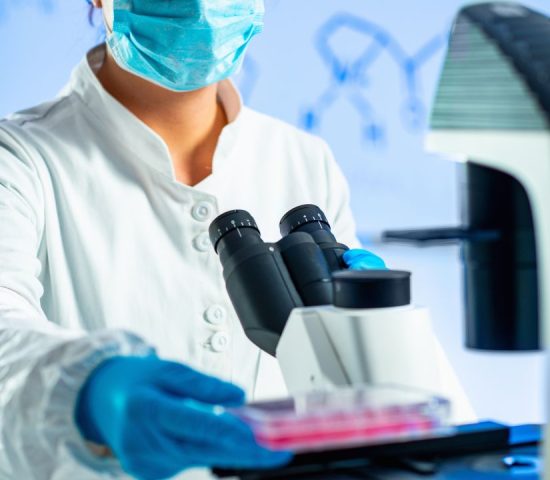James Black
CROSSFIT TRAINER
James Black
CROSSFIT TRAINER

Promising Therapeutic Agents
Mesenchymal stem cells (MSCs) have garnered significant interest in regenerative medicine due to their ability to differentiate into various cell types and their immunomodulatory properties. Recently, the focus has shifted towards exosomes produced by MSCs (MSC-exosomes) as potent mediators of their therapeutic effects. These nanosized vesicles encapsulate bioactive molecules that can modulate cellular activities and promote tissue repair and regeneration.
Characteristics of MSC-Derived Exosomes
MSC-derived exosomes are small, membrane-bound vesicles ranging from 30 to 150 nanometers in diameter. They contain a complex cargo of proteins, lipids, and nucleic acids (such as mRNAs and microRNAs) that reflect the characteristics of their parent MSCs. This cargo enables MSC-exosomes to influence various physiological and pathological processes in recipient cells.
Immunomodulation
MSC-exosomes have potent immunomodulatory effects. By delivering immunoregulatory molecules, MSC-exosomes can suppress inflammatory responses and promote tissue healing. This makes them attractive candidates for treating autoimmune diseases and inflammatory conditions.


Tissue Regeneration
MSC-exosomes promote tissue regeneration by enhancing cell proliferation, migration, and differentiation. They deliver growth factors and other regenerative molecules that activate signaling pathways crucial for tissue repair. For instance, in sports injuries or chronic degenerative arthrosis. MSC-exosomes have been studied for their ability to treat osteoarthritis and enhance bone healing. They can promote the regeneration of cartilage and bone tissues by delivering growth factors that stimulate the proliferation and differentiation of chondrocytes and osteoblasts. This makes them potential therapeutic agents for conditions like osteoarthritis and fractures.
Anti-Apoptotic Effects
Another critical function of MSC-exosomes is their ability to protect cells from apoptosis (programmed cell death). They achieve this by transferring anti-apoptotic proteins and microRNAs that inhibit pro-apoptotic signaling pathways. This property is particularly valuable in conditions where cell survival is compromised, such as in neurodegenerative diseases and acute injuries.
MSC-derived exosomes represent a powerful and versatile tool in regenerative medicine. Their ability to modulate the immune response, promote tissue repair, and protect against cell death makes them promising therapeutic agents for a wide range of conditions. As research continues to advance, MSC-exosomes may pave the way for novel, effective treatments that harness the body's natural healing processes. The journey to fully understand and exploit the therapeutic potential of MSC-exosomes is still in its early stages, but the future holds great promise.
“

Monica Reuss
CLIENT OF CLUB“Our office is something we are pleased with. We consider it the little magnet; it is wanting to come here and afterward difficult to leave it. Our office is additionally a big name.”

Tomas Reuss
CLIENT OF CLUB

















